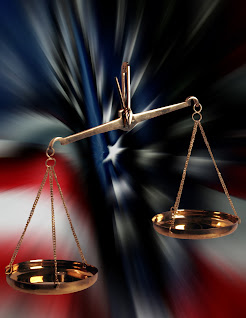Intercepting, Recording, or Divulging Private Communication (WA State)
Under Washington State laws, what is the law concerning intercepting, recording, or divulging private communication? Here's my point of view (NOTE: please read our DISCLAIMER before proceeding).
VIOLATING RIGHT OF PRIVACY (WA STATE) -- CHAPTER 9.73 RCW
In Washington State, chapter 9.73 RCW (hereinafter, "privacy act") makes it unlawful to, inter alia, intercept, record, or divulge private communication without first obtaining the consent of all the participants in the communication. The relevant section of the privacy act states as follows:
RCW 9.73.030
Intercepting, recording, or divulging private communication—Consent required—Exceptions.
(1) Except as otherwise provided in this chapter, it shall be unlawful for any individual, partnership, corporation, association, or the state of Washington, its agencies, and political subdivisions to intercept, or record any:
(a) Private communication transmitted by telephone, telegraph, radio, or other device between two or more individuals between points within or without the state by any device electronic or otherwise designed to record and/or transmit said communication regardless how such device is powered or actuated, without first obtaining the consent of all the participants in the communication;
(b) Private conversation, by any device electronic or otherwise designed to record or transmit such conversation regardless how the device is powered or actuated without first obtaining the consent of all the persons engaged in the conversation.
(2) Notwithstanding subsection (1) of this section, wire communications or conversations
(a) of an emergency nature, such as the reporting of a fire, medical emergency, crime, or disaster, or
(b) which convey threats of extortion, blackmail, bodily harm, or other unlawful requests or demands, or
(c) which occur anonymously or repeatedly or at an extremely inconvenient hour, or
(d) which relate to communications by a hostage holder or barricaded person as defined in RCW 70.85.100, whether or not conversation ensues, may be recorded with the consent of one party to the conversation.
...
(5) This section does not apply to the recording of custodial interrogations pursuant to RCW 10.122.040.
Id. (emphasis added). NOTE: I have intentionally omitted subsections (3)-(4) in order to address them separately, below.
EXCPETIONS & RELATED PROVISIONS
IMPORTANT: There are additional prohibitions, various exceptions, and related provisions within the privacy act that are beyond the scope of this article. Accordingly, I strongly encourage the reader to review the entire privacy act on the official Washington State Legislature Website for more information > Chapter 9.73 RCW.
HOW TO DETERMINE IF CONSENT IS OBTAINED
As noted above, consent plays a vital role in avoiding unlawful activity under the privacy act. To determine whether consent has been effectively obtained prior to intercepting, recording, or divulging private communication, the law provides as follows:
RCW 9.73.030
Intercepting, recording, or divulging private communication—Consent required—Exceptions.
…
(3) Where consent by all parties is needed pursuant to this chapter, consent shall be considered obtained whenever one party has announced to all other parties engaged in the communication or conversation, in any reasonably effective manner, that such communication or conversation is about to be recorded or transmitted: PROVIDED, That if the conversation is to be recorded that said announcement shall also be recorded.
(4) An employee of any regularly published newspaper, magazine, wire service, radio station, or television station acting in the course of bona fide news gathering duties on a full-time or contractual or part-time basis, shall be deemed to have consent to record and divulge communications or conversations otherwise prohibited by this chapter if the consent is expressly given or if the recording or transmitting device is readily apparent or obvious to the speakers. Withdrawal of the consent after the communication has been made shall not prohibit any such employee of a newspaper, magazine, wire service, or radio or television station from divulging the communication or conversation.
Id.
DETERMINING WHETHER CONVERSATIONS ARE PRIVATE
"To determine whether a conversation is private under the privacy act, … [Washington courts] consider[:]
(1) the subject matter of the communication,
(2) the location of the participants,
(3) the potential presence of third parties,
(4) the role of the interloper,
(5) whether the parties 'manifest a subjective intention that it be private,' and
(6) whether any subjective intention of privacy is reasonable.
Marin v. King Cnty., 194 Wn.App. 795, 806 (Wash.App. Div. 1 2016), petition denied, 186 Wash.2d 1028, 385 P.3d 124 (Table) (Wash. 2016) (citing State v. Mankin, 158 Wn.App. 111, 118, 241 P.3d 421 (2010) (quoting State v. Christensen, 153 Wn.2d 186, 193, 102 P.3d 789 (2004)).
VIOLATIONS: REMEDIES AND PENALTIES
The privacy act provides remedies and penalties for violations under both civil and criminal law.
CIVIL ACTIONS. A violation of the privacy act can subject the violator to both a civil action and liability for damages, as follows:
RCW 9.73.060Violating right of privacy—Civil action—Liability for damages.Any person who, directly or by means of a detective agency or any other agent, violates the provisions of this chapter shall be subject to legal action for damages, to be brought by any other person claiming that a violation of this statute has injured his or her business, his or her person, or his or her reputation. A person so injured shall be entitled to actual damages, including mental pain and suffering endured by him or her on account of violation of the provisions of this chapter, or liquidated damages computed at the rate of one hundred dollars a day for each day of violation, not to exceed one thousand dollars, and a reasonable attorney's fee and other costs of litigation.
Id.
CRIMINAL PENALTIES. The privacy act also subjects violators to criminal liability in the form of a gross misdemeanor, as follows:
RCW 9.73.080
Id. (emphasis added).
LITIGATION (CIVIL & CRIMINAL). Lastly, the privacy act addresses the admissibility of intercepted communication in evidence, as follows:
RCW 9.73.050Admissibility of intercepted communication in evidence.Any information obtained in violation of RCW 9.73.030 or pursuant to any order issued under the provisions of RCW 9.73.040 shall be inadmissible in any civil or criminal case in all courts of general or limited jurisdiction in this state, except with the permission of the person whose rights have been violated in an action brought for damages under the provisions of RCW 9.73.030 through 9.73.080, or in a criminal action in which the defendant is charged with a crime, the commission of which would jeopardize national security.
Id. (emphasis added). Accordingly, Washington courts have held that "[a] violation of the privacy act requires exclusion of all evidence of the contents of the illegally recorded conversations." Marin, 194 Wn.App. at 806.
Need Help?
If you need help with your legal issue, then consider contacting an experienced Washington State Attorney as soon as possible to discuss your case. Please note: the information contained in this article is not offered as legal advice and will not form an attorney-client relationship with either this author or Williams Law Group; please see our DISCLAIMER.
–gw









